On this week’s episode of the Boxoffice Podcast, sponsored by Spotlight Cinema Networks, co-hosts Rebecca Pahle and Daniel Loria speak to COO Matthew Baizer of Flix Brewhouse, a nine-location dine-in chain (and microbrewery) celebrating its tenth anniversary in 2021. In the episode’s news segment, Pahle, Loria, and co-host Russ Fisher break down Dune‘s international debut, Shang-Chi‘s third-week hold, and the release strategy and box office results of Clint Eastwood’s Cry Macho, released in theaters and on HBO Max for Warner Bros.
This episode sponsored by:
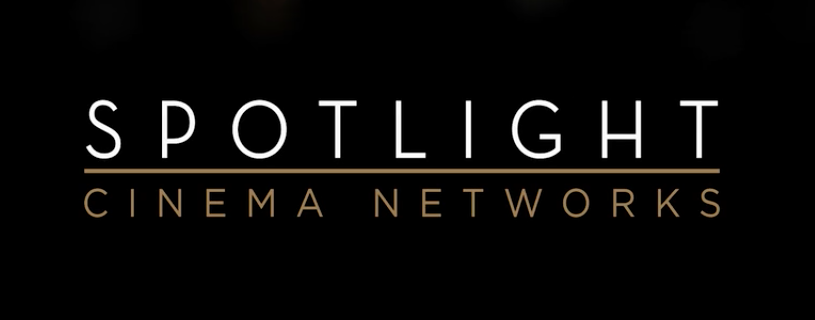
The following interview has been edited for length and clarity.
Could you talk a bit about what 2020 was like for Flix Brewhouse? You’re located across several different states, so obviously it’s going to be different location-to-location.
[We have] 10 locations in seven states. When the pandemic hit, we had nine. We had three that were in various stages of development. We actually opened one of those in the middle of the pandemic, so that’s how we got to then. It was quite a year, I have to tell you. Having theaters that were nearly completed when this hit and having some that were in various stages of construction—and all the crews had to stop. That was just the beginning of the problem. The reduction of staff related to furloughs and closures, when this hit, was one of the most painful days in my life. I thought back in March that that pain was going to be short-lived.
Everyone thought, “Oh, we’ll be back by June.”
Here we sit recording this in September of 2021, 18 months after this whole thing started. We guessed various things along the way, at various times: How long it would last. When the vaccine would be available. When money would arrive for the Shuttered Venues Operators Grant. What would the federal government do? How many stimulus plans would they pass? I gotta tell you, I was wrong about everything. If somebody were to create betting lines on Covid-19 and asked me to pick a side, and if somebody did the opposite, they’d be a billionaire.
It was really, really tough. One of the tough things is that Flix was built on this culture around beer and movies and fun—and all these things related to happiness, right? And here we are in the middle of misery having to take 1,250 team members and lay them off. And then we’ve got hundreds of thousands of guests in our loyalty database, and what do we say to them? That was really the challenge. How do you communicate with the stakeholders of your company, whether it’s your investors, whether it’s your managers or team members or your customers? We didn’t have anything to say that’s accurate, so we just stopped talking. That’s the reality of the situation. The communication side from us, I would say it was rather poor. But the reason for that is, how many times can I be the boy who cried wolf and say the wrong thing? “Well, we think we’re going to open next month.” Six months later, here we are.
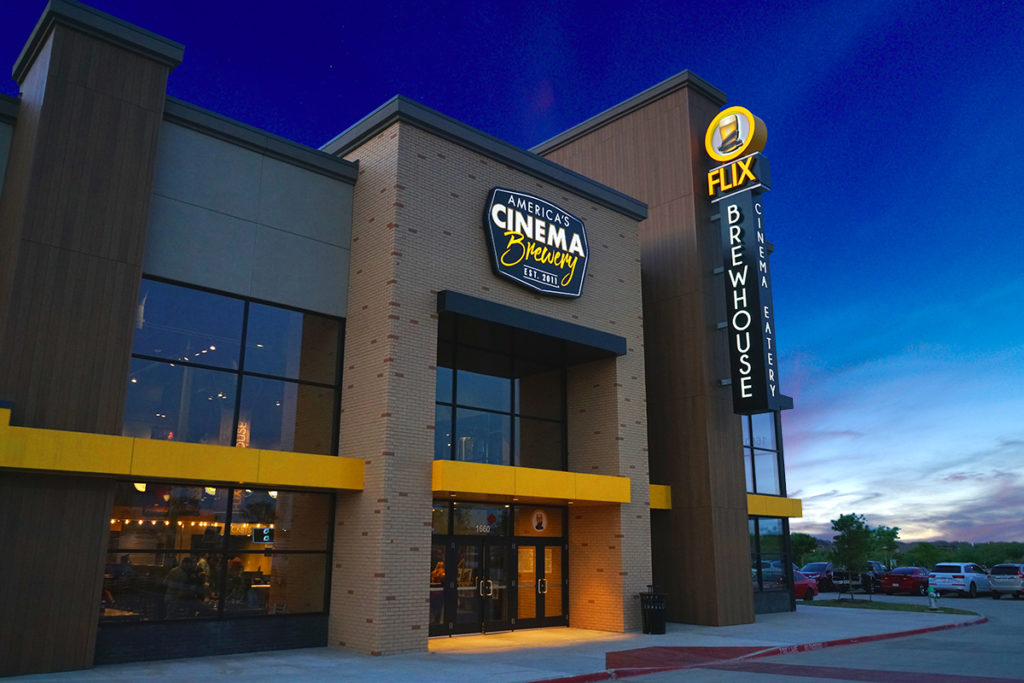
And once you are allowed to reopen, the specifics are different from state to state. How did you go about that? What was Flix Brewhouse’s timeline of reopening, and how did you go about communicating different things to different audiences?
When we did our first attempt at a reboot was June of 2020. That was the first time we could open the doors and at least get some people back to work. We had a huge core group of team members returning to the business. Why? Because everybody was closed in in March. Restaurants were closed. Everybody that we’re competing for—in the same sector, for the same team member—was closed. So we returned a good core of people. But then we shut down. We waited until August, and we did it again. And we still had a good core group of people, because there were a lot of food and beverage operators, in addition to movie theaters, that were still closed in various areas.
But the third time, that was ugly. You’ve got restaurants back open. You’ve got people that need jobs. You’ve got federal stimulus and supplements to unemployment ending, and people need to go back to work. We lost a tremendous amount of our core group.
On top of that, to get back to your question, you have all of these different protocols that you need to deal with theater by theater. Some have spacing requirements. Some don’t. Some allow you make sure that you leave a row between people. Some don’t. Some require masks all the time. Some don’t. Some even went so far as to say you can open for movies, but you can’t open for food and beverage, because then you would have to take your mask off inside the auditorium. Well, that’s just untenable. We can’t do that. Our core business is food and beverage. So how do we navigate it? We kind of threw in the towel and said, “We’ve got to wait this out.” It’s untenable to continue to do things and try and manage all these different standards. And in addition to that, to have to communicate this to people, so that the people that are actually out in the field, or your customers for that matter, know what they can and can’t do. It’s just all horribly confusing.
Another aspect of that communications is what movies are coming out, and when, and how—what’s theatrical-only vs day-and-date, for example. What was your communications strategy like on that point?
That was tricky, too, in the beginning. It’s a lot simpler now, because films don’t seem to be moving. And certainly things aren’t going on sale that are moving. Back then, we had films that actually went on sale—we sold tickets—and then they move the day. So now we’re in a position of, “Do you want to wait? Do you was a refund?” Just a giant mess. We’re not in a position now where we’re dealing with that, and you can sense a bit of a comeback. You can see momentum at the box office. You can see a consistent film slate. All of those things are good.
We still have some some things we need to deal with. We’ve got variants out there. We’ve got mask-wearing going on by all our team members. We have to make decisions on mandatory vaccinations at some point, both on the team member side and the guest side. We’re not in a position to do that right now. Way too early for us. But, as you can see, New York is requiring it for their employees as well as guests that come in to dine. There’s lots of things out there that are still in flux, that will continue to drive and change our business, not the least of which is the final approval of vaccines.
Back when you guys opened in 2011, the dine-in space wasn’t as pervasive as it was right before the pandemic took off in 2020. You had nine years, basically, where Flix Brewhouse grew along with the dine-in concept. What does Covid mean for Flix Brewhouse?
The dine-in business in 2011 was very different than it is now. That’s kind of an obvious statement, because things always evolve over the course of 10 years. However, it was much more cutting-edge [then]. There were very few players that were in the dine-in space. Some people had tried them but hadn’t really expanded. Now you’ve got chains that are have expanded nationally over the course of that 10 years in the dine-in space. It’s become much more of a common way to go see a film.
I think dine-in ultimately will benefit from this pandemic. Why do I say that? Let’s not fool ourselves: There are still going to be plenty of titles that are going to be chosen to play day-and-date with theaters. What do you make a decision on as a consumer? If it’s a kid’s film, do I get a couple of pizzas and throw them in front of my giant screen television? Give them some candy, soda, popcorn, and say, “Hey, we’re doing movie night at home”? Or if it’s something that you want to be more of an event—What can’t you replicate in your home? You can always make dinner, but you can’t necessarily make Flix dinner. And you can’t do it without a lot of prep and time and hassle and cleanup and everything else. The dine-in experience is more unique, and we’re providing something that is much more difficult—not impossible—but much more difficult and time-consuming to replicate in-home.
I believe that for special shows and shows that even will play day-and-date at home, you’re going to see a greater affinity by the consumer to go see it in a dine-in theater versus a more traditional theater, where the the home is probably competing more.
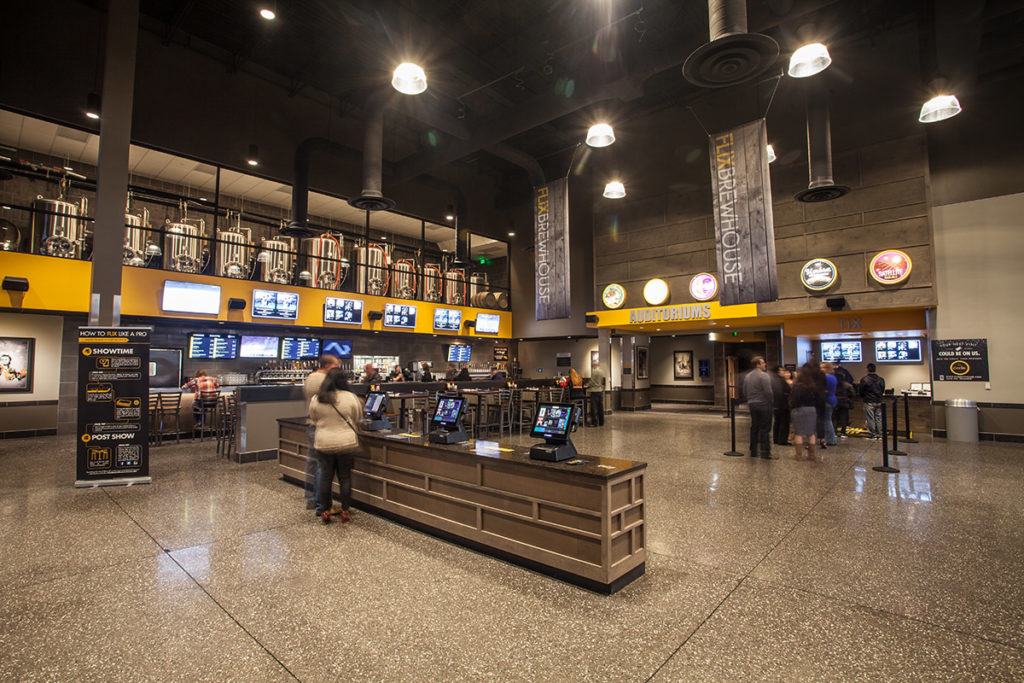
Flix has grown considerably over the last 10 years. You can’t just differentiate yourself by saying, “I’m a dine-in cinema.” How does Flix approach this challenge in having its own identity in a very, very competitive niche and exhibition?
That’s kind of a softball for a guy like me, because what is the name of the concept? Flix Brewhouse. So let’s first talk beer, right? Because everybody likes talking beer. Flix started brewing beer in 2011, when craft beer was just getting its sea legs. Now it has greater market penetration, both in micro-breweries as well as just general craft side. But Flix has been doing this for for 10 years. There are people who come to Flix just for the beer.
A little side story here: When I got to Flix, I didn’t know much about it. It was an interview I was going on with our CEO. I walk in, I see what it is. had a night free before my interview, so I get on the phone and I call my wife, and I say to her, “You’re not going to believe this.” She says, “What’s that?” I said, “This place. On the rare times when we’re able to go to a movie, once a month, date night… there’s two very, very compelling things here.” Number one, we get to eat while we’re in the movie. Many times we’re both working, and we go out to dinner and a movie. And 20% of the time it’s either dinner or a movie, because we never made it to both. It was too late, we’re too tired, we have to pay the babysitter, all those kind of things.
Number two is the more compelling one, because it’s the point of differentiation that I was just talking about. [My wife and I] trade movie picks back and forth. I would say “I want to go see Rambo,” and I would get a big eye roll. And then she gets she go do her thing, and it would be—back then it wasn’t around, but something like Downton Abbey, or something that is a little more female-oriented, shall we say. So I call her, and I said, “Guess what? You can pick every movie from now on.” And she said, “Why?” And I said, “Because I can sit there and drink beer! I don’t care what’s on the screen.” And that made a huge difference. That is a differentiator for Flex. We end up having the female making the buying decision. We know this. A large majority of the time,[women are] the plan-makers. We have female-oriented content that goes completely crazy. That beer hook in order to get people really interested in what’s going on at Flex is very effective.
Additional things: We also do custom pre shows. We have a person that sits here in this office and makes pre-show content for every single film. You’re not watching something that’s completely boring before you go to to a movie. Our pre-show is always very interesting and themed to the movie and the stars that are in the movie. We focus a lot on alternative events, not just traditional first run content. That’s not necessarily something that you can get in your home. Almost always, when we do those—what we call Flix Picks—we give you something to bring home. We do a custom glass or something like that. We get people that are that are literally collecting them for every single movie that we do that’s alternative.
And then, lastly: we don’t make it too fancy. Here’s what I mean by that. We have modern brewhouse interiors, which are relatable to people. Accessible foods, so there’s nothing really crazy on the menu. And pricing that is competitive on the ticket side with the large chains. We’re not going any higher [in ticket pricing] than the large chains are. And lastly, casual dining prices on the food and beverage side. Your typical bar and grill or casual dining chain, we’re going to mirror their pricing. That makes us really accessible to a lot of people, all of those things combined. And I’m really happy and proud of the brand we’ve built.
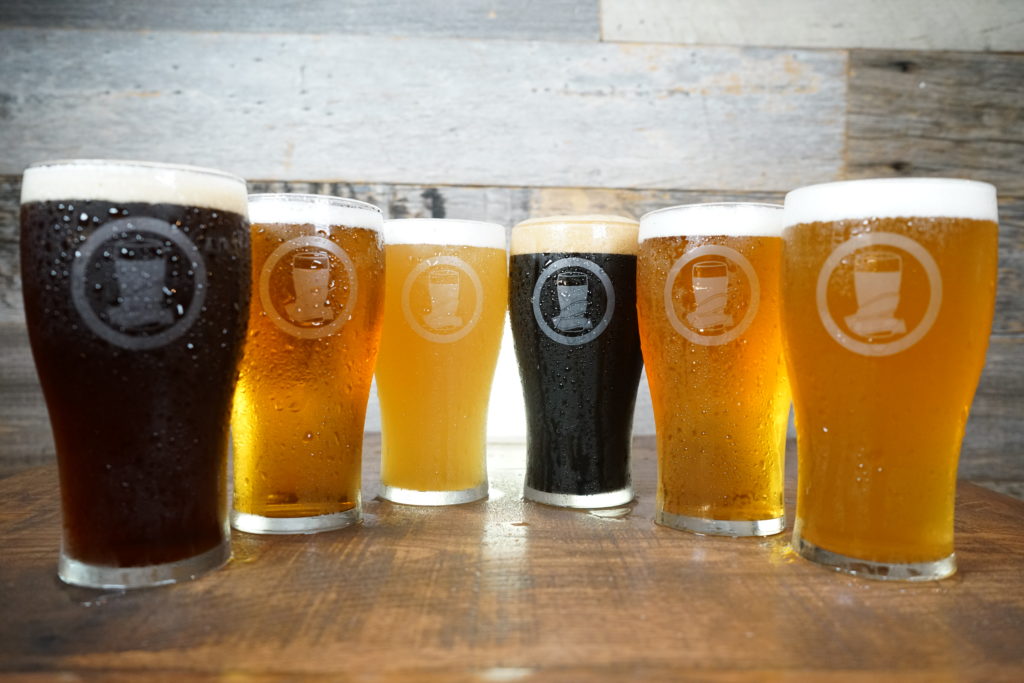
For dine-in cinemas, and cinemas as a whole, we’ve seen a lot of operational changes over the last 18 months: things like a move towards more contactless ordering, digital ordering, sometimes you have a switch up in the menu. What changes have you had to make from that operational perspective? And which of those do you think have long-term viability for Flix Brewhouse?
The first would be obvious: focus on masks, focus on mobile, focus on contactless. Things that I think would be expected and standard in society with our type of business as it sits right now. They’re just necessary to add in due to the pandemic. But what I think we need to talk about is changes that are needed in this model, with or without Covid. There are a lot of them. Our innovation is focused on what would happen without Covid, and why was it necessary?
This boils down to two things: labor, because dine-in cinemas are very labor-intensive. And secondarily, guest choice and convenience.
I’ll tell you a quick story. I went to see a movie at Flix Brewhouse not too long ago, and there was a gentleman sitting next to me, about two seats down. As I usually do, I’m doing my best to observe how people use Flix. I saw him come in. He didn’t even look at the menu. He wrote down everything that he wanted on a notepad. He had it all organized and ready for the server. Then the server came over, saw that, and proceeded to go through “Have you been to Flix Brewhouse before? Let me explain to you how this works.” And [the customer is] clearly going, “I want you to get away from me. Here’s everything I need. I love this place. Just give it to me how I want.” I think that’s a that’s a pretty compelling story and what we need to respond to as an organization with the consumer.
Where I’m headed with this is, we need to figure out a way for people to preorder. These are all in various stages of development. Some are available right now, some will come out in the coming weeks, months, years. But people figuring out how to preorder, people figuring out how to add on [to the] order, being able to control their own experience. So they could go, “I don’t want to do any of that. I want a server to come up to me and explain it to me and all those kind of things.” Or they could say, “I’ve got everything done, and I don’t need this service.” And we can focus specifically on delivery and running.
That’s where we’re headed as an organization, to figure out how to reduce some of the labor to right-size it in order to be able to meet the expectations of the guests. I have a whole other Flix-of-the-future vision that I was working on right when the pandemic hit that had to do with robots and carrying trays to theaters and having only one person in there delivering that tray to the guest. There’s all sorts of movements out there related to self-service alcohol these days. Self-service beer with cards, NFC or RFID permissions for you to be able to pour from the tap. You can do it with wine, you can do it with beer.
Those places are really neat. I’ve never seen a theater do it.
Exactly. The model of the future looks exactly like that, where you have a lobby, you have all sorts of beverage choices. We can cut down on order takers, because we have the technology on the mobile app for mobile ordering both in and outside of the theater. The inside the theater piece is the tricky piece, right? Because what you don’t want is somebody turning on their flashlight and shooting a QR code in the middle of a movie. So we have to get that technology to be RFID technology, where the background of a phone is automatically dimmed down to the lowest possible, black-only screen, so that the light doesn’t interfere with your neighbor. It allows you to get that that menu pulled up not by shooting a picture, but by RFID. It’s already stored your payment method. You can add on anything you want during a show and it will show up in complete automated fashion, with the exception of a person delivering it from its landing spot in the theater to you at your seat.
One of the things we’ve done to make it more convenient—on the customer end, but then also to attract a whole additional set of future team members—is, as we’ve reopened each Flix, we’ve added on a suggested 18 percent gratuity to every single check. That check comes preloaded with that gratuity. It’s automatically on there. This has made it more convenient for the guests. There’s a lot of people out there that [who are] blown away by the movie, and they forget to sign their check. They don’t tip. There’s all sorts of things. This eliminates that and gets our servers a guaranteed income. And it’s been phenomenal. I kid you not: We’ve done this in five open locations right now. And number six already had this, since they were our test locations. And I’ve gotten a total of three complaints. I’ll take three complaints out of the number of guests.
One of the things you mentioned earlier is finding the right cinema advertising partner that can help bring in some of that specialty content. Spotlight Cinema Networks is very active in this space, and that’s partner that you’ve had for a number of years. Can you tell us about how that relationship came about and the benefits that you have had in working with Spotlight?
This is one of those relationships that took a while to get going, because we were really resistant to adding any kind of advertisement on-screen. We had our pre-shows that we were doing. We ran our Flix advertisements for upcoming events. And to run more traditional advertising just seemed like it was off-brand, if you will.
We saw what other people were doing, and we felt that the ads, for lack of a better expression, were kind of cheesy. They didn’t go with the vibe and the feel that we wanted. And along came Spotlight and says, “Well, we can put advertisements on your screen.” And we said, “No, we don’t want to do it.” And they said, “Let’s discuss that a little more” And we came up with a system where they send us the ad. We approve every single ad that goes on screen. And we’ve consolidated them to what we call an ad block that comes after our pre-show and before the trailers. It’s only two or three ads, and they’re about 30 seconds each, generally. They’re all super high-quality, high-class content, as opposed to some things that were more mainstream products that you would see on television. A lot of times they’re upcoming television shows, they’re Apple products, they’re Starbucks in-home products. A lot of car ads, for luxury and upscale cars. Those kinds of things. And it’s barely noticeable.
They have been a great partner in that they listen to us. They don’t book unless we approve. If we say no, they say “Fine, let’s look for another one.” It’s just been a fantastic working relationship. We’ve been able to keep it consolidated to just that little interim space between the end of our pre-show and the beginning of trailers. Never a hiccup in how they deliver the product to us, with their capture server locally. We couldn’t be more pleased with the relationship with Spotlight Cinema Networks.

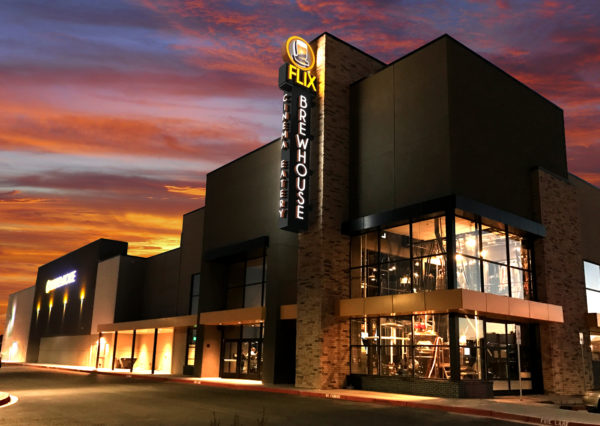

Share this post